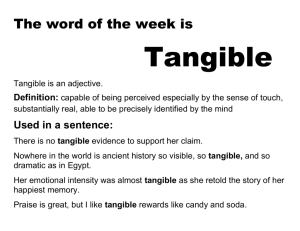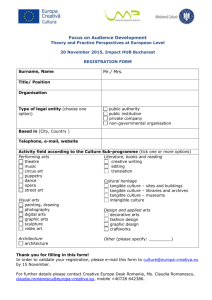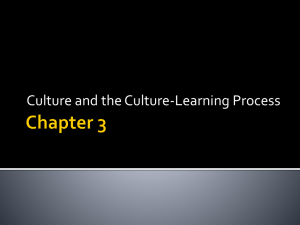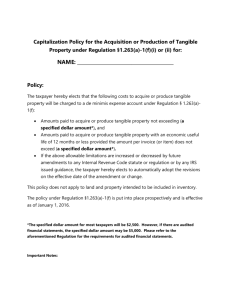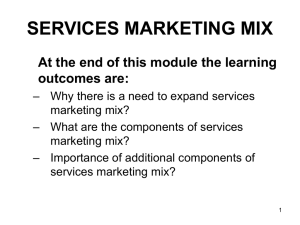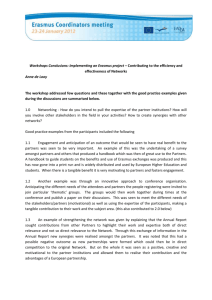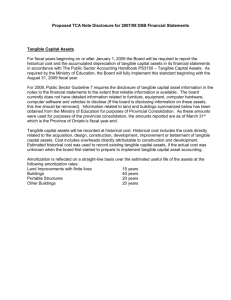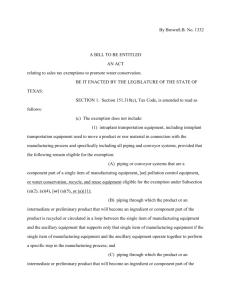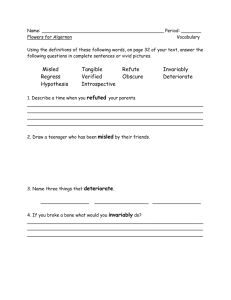The Power of Tangible Things: Validation & Meaning
advertisement
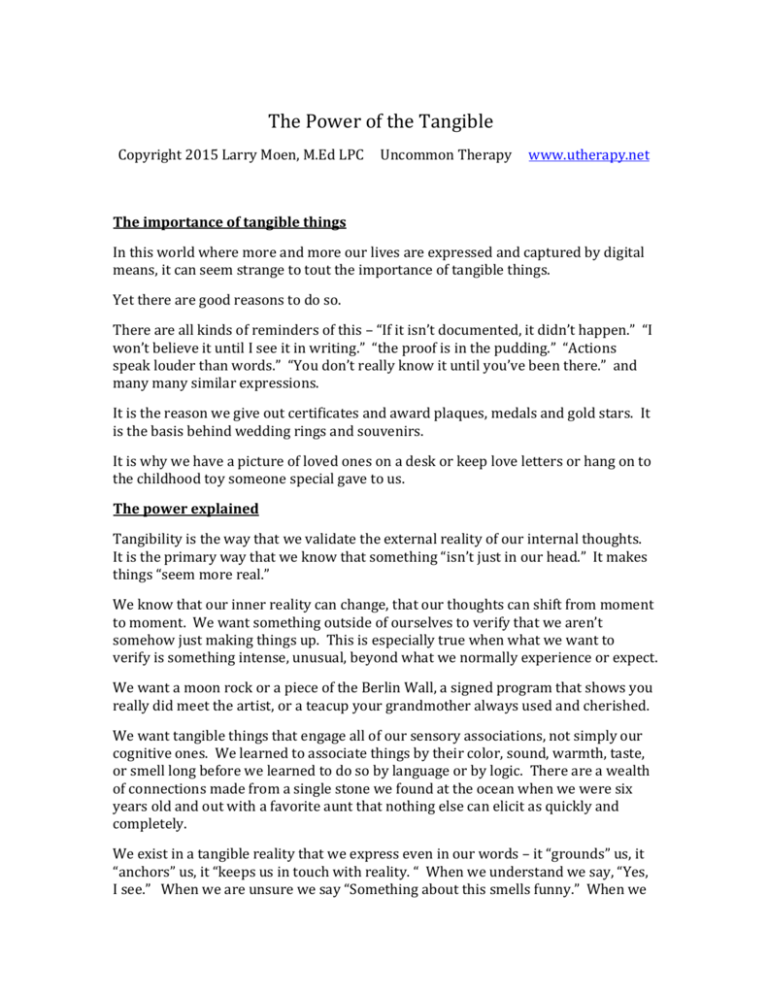
The Power of the Tangible Copyright 2015 Larry Moen, M.Ed LPC Uncommon Therapy www.utherapy.net The importance of tangible things In this world where more and more our lives are expressed and captured by digital means, it can seem strange to tout the importance of tangible things. Yet there are good reasons to do so. There are all kinds of reminders of this – “If it isn’t documented, it didn’t happen.” “I won’t believe it until I see it in writing.” “the proof is in the pudding.” “Actions speak louder than words.” “You don’t really know it until you’ve been there.” and many many similar expressions. It is the reason we give out certificates and award plaques, medals and gold stars. It is the basis behind wedding rings and souvenirs. It is why we have a picture of loved ones on a desk or keep love letters or hang on to the childhood toy someone special gave to us. The power explained Tangibility is the way that we validate the external reality of our internal thoughts. It is the primary way that we know that something “isn’t just in our head.” It makes things “seem more real.” We know that our inner reality can change, that our thoughts can shift from moment to moment. We want something outside of ourselves to verify that we aren’t somehow just making things up. This is especially true when what we want to verify is something intense, unusual, beyond what we normally experience or expect. We want a moon rock or a piece of the Berlin Wall, a signed program that shows you really did meet the artist, or a teacup your grandmother always used and cherished. We want tangible things that engage all of our sensory associations, not simply our cognitive ones. We learned to associate things by their color, sound, warmth, taste, or smell long before we learned to do so by language or by logic. There are a wealth of connections made from a single stone we found at the ocean when we were six years old and out with a favorite aunt that nothing else can elicit as quickly and completely. We exist in a tangible reality that we express even in our words – it “grounds” us, it “anchors” us, it “keeps us in touch with reality. “ When we understand we say, “Yes, I see.” When we are unsure we say “Something about this smells funny.” When we find something we like we say “That’s to my taste.” We use tangible things in most of our metaphors , because they encapsulate meaningful associations and attributes in ways we know are based on what is real to us. Keep using tangibles Because of all of this, and because we are ever-more into an age of virtual rather than tangible things, it is helpful to remember to make sure that tangible things remain part of your expressions of meanings and communications. Perhaps one day technology will give us the ability to instantly and temporarily recreate tangible objects in all their sensory aspects – but the rock from the beach will still not have the same meaning as the virtual rock if we are aware that it is a replica. Tangible things hold the meaning of experiences in ways we are unlikely ever to reproduce. Express the meanings in your life verbally or digitally, but also tangibly and concretely. Copyright 2015 Larry Moen, M.Ed LPC Uncommon Therapy www.utherapy.net

